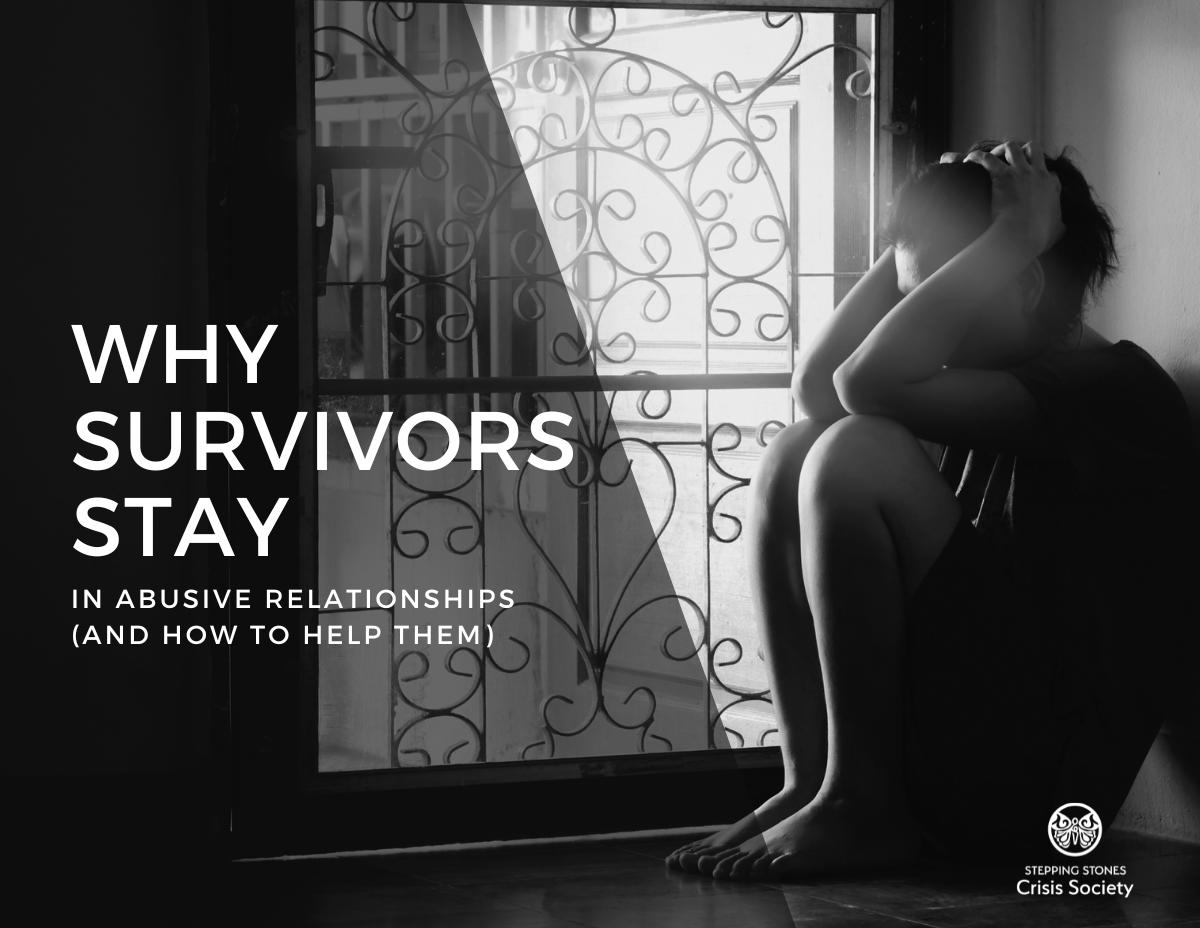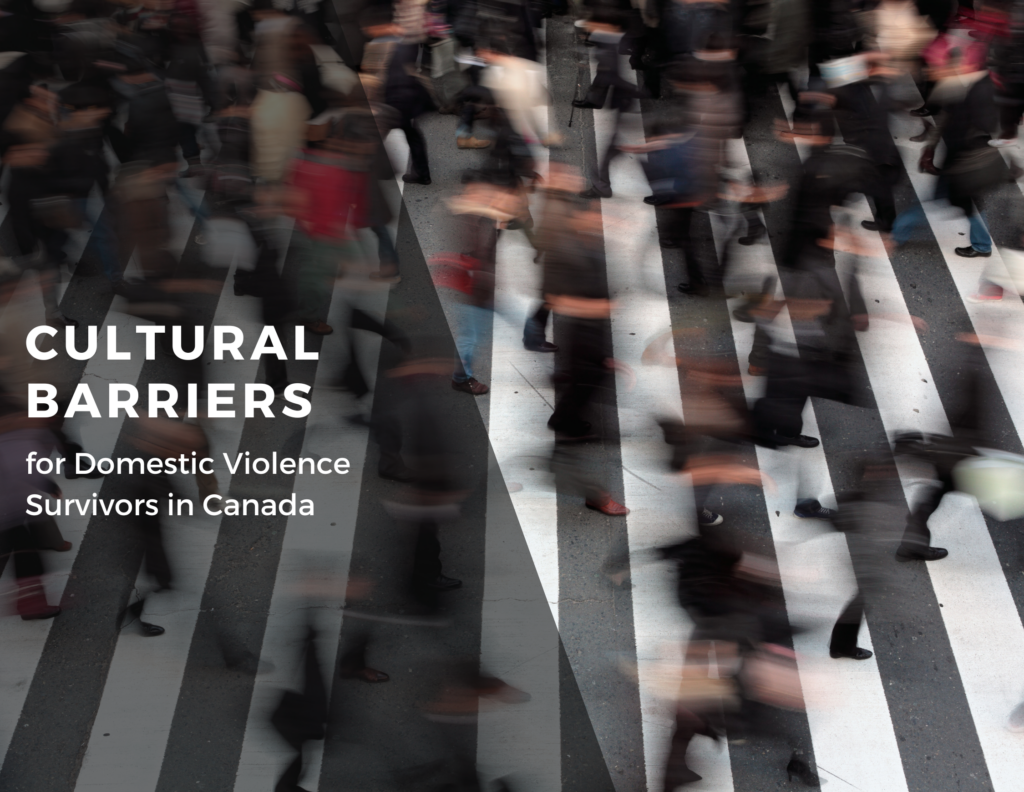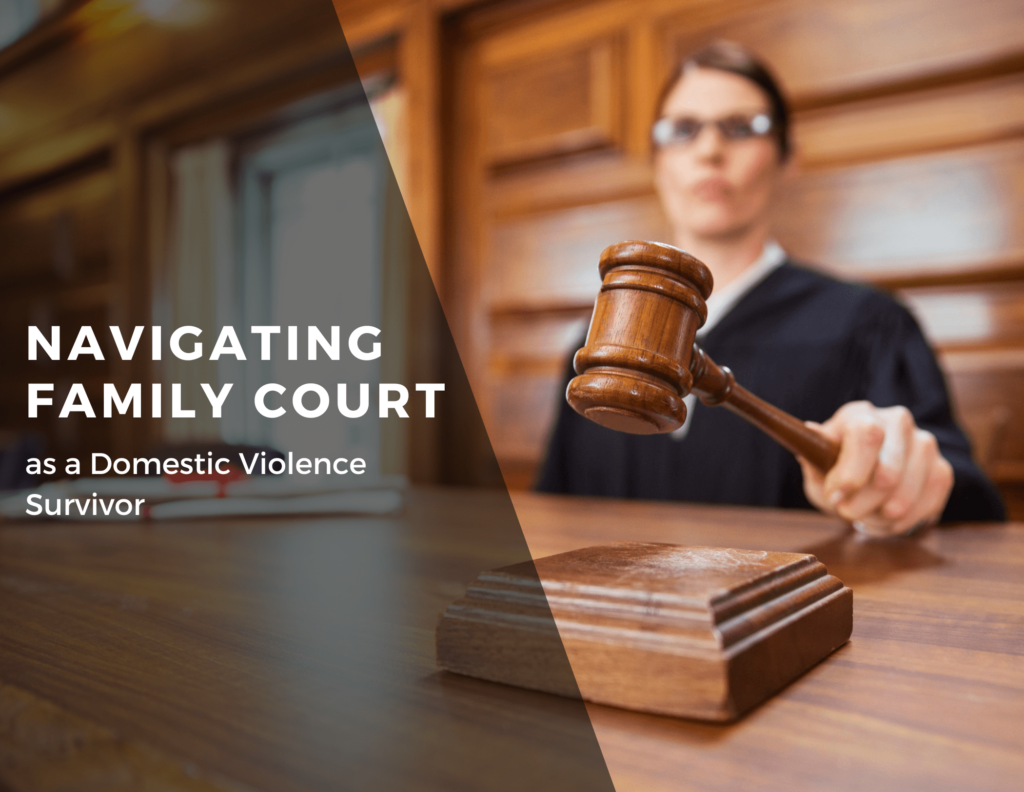Why survivors stay in abusive relationships (and how to help them)

If you wonder why survivors stay in abusive relationships, this is your guide to understanding and helping them.
“Why don’t you leave?” may be the most heard phrase by victims of abuse, however, there are plenty of reasons why survivors stay in abusive relationships, and leaving one is often much harder than it would appear to someone outside of the relationship. If you know someone who is currently living through an abusive relationship, your role should be that of a listener and supporter, always trying to understand them, and never judging.
For you to understand them better, here are some of the main reasons why people stay in abusive relationships. And if you read to the end of this article, you will also find ways in which you can help them.
Back in 2016, DomesticShelters.org conducted a survey where they asked 2,019 survivors about the main barriers to leaving an abusive relationship, with many of their results being related to fear and threats coming from their abuser. However, many more reasons were disclosed, with most of them being very evenly distributed, which means that there is no one single reason why survivors stay in abusive relationships, but many, and probably, a lot of them weighing on the victim at the same time. Below, we will delve into all of these topics in-depth, as well as some that are not included in this graph

Fear and Threats
Perpetrators often employ intimidation tactics to coerce survivors into staying, often issuing threats like, “If you leave me, [insert terrifying consequence here].” Survivors frequently state threats and fear of reprisal from the abuser as primary reasons for their inability to leave. Instances of escalated violence, such as harm inflicted on family pets or the acquisition of weapons by the abuser, serve to demonstrate their capacity for heightened aggression. Moreover, survivors may face threats of harm directed towards themselves, their family members, or even the abuser themselves, compelling them to return out of a potent mixture of fear and guilt.
Gaslighting and Manipulation
Gaslighting, a form of psychological manipulation, entails the abuser downplaying the severity of their actions, often leading the survivor to doubt their own recollection of events. Consequently, the survivor may begin to question the true extent of the danger they face, even as external observers, such as friends and family, recognize it. The abuser may further exacerbate this by shifting blame onto the survivor, insinuating that modifying their behaviour or complying better would cease the abuse. You can read our blog post on gaslighting here to understand more about this topic.
Psychological manipulation, similar to gaslighting, aims to disorient the survivor to the point where they relinquish their ability to think independently. The survivor becomes dependent on the abuser for guidance and decision-making, often due to tactics such as sleep deprivation, information control, covert drugging, and decision-making restrictions. It is an important reason why survivors stay in abusive relationships.
Financial Coercion
Financial manipulation is a prevalent tactic employed by abusers to maintain control within the relationship. This may involve restricting access to finances, imposing strict spending limits, monitoring expenditures closely, sabotaging the survivor’s credit, or overspending to render them economically vulnerable. Without the financial autonomy necessary to secure alternative accommodation, purchase necessities, or arrange childcare to facilitate employment, survivors often find themselves ensnared in a cycle of dependency.
Concerns for Dependents and Pets
The welfare of dependents, including pets, is one of the major reasons why survivors stay in abusive relationships. Survivors may hesitate to leave if they fear for the safety of their children or animals in their absence. Fortunately, organizations exist to provide temporary shelter for animals while survivors secure alternative accommodation. Abusers also employ threats of custody battles to dissuade survivors from leaving, instilling fear that they will lose custody of their children. Such threats may involve baseless accusations of abuse leveled against the survivor to manipulate custody proceedings. Seeking guidance from advocates and legal professionals specializing in domestic violence cases is crucial for navigating these complex legal issues.

Nowhere to go
Victims will often seek a place to go after leaving their abusive home without success. Most often they will find help from friends or family, or even domestic violence shelters, however, the lack of help from others or high demand for refuge often results in domestic violence shelters operating at full capacity, which can be an obstacle. And so, survivors may discover that despite their readiness to leave, local shelters are unable to accommodate them.
Shame or Guilt
Many survivors grapple with feelings of shame or guilt, erroneously attributing fault to themselves for allowing the abuse to persist. They may blame themselves for not recognizing the warning signs sooner or for returning to the abuser. Coupled with a societal tendency towards victim-blaming, shame can trap survivors in cycles of abuse.
Mistrust in Legal Systems
Survivors who have had negative interactions with law enforcement in the past may not want to seek assistance again. The abuser’s claims that the survivor will not be believed or that they can manipulate the legal system to incriminate the survivor worsen their unwillingness to seek help.
Love or Emotional Attachment
A common reason why survivors stay in abusive relationships. Emotional attachment, often termed trauma-bonding, can attach survivors to their abusers. Abusers frequently target empathetic individuals, initially presenting themselves as charming and engaging. This phase, known as love-bombing, precedes attempts to rationalize abuse, shifting blame onto external factors such as a difficult childhood or substance abuse. Promises of change and the desire to save the positive aspects of the relationship compound the survivor’s belief that they can help them change.
Other times, there is real love behind the abusive relationship, often born out of having a history together, children, and possibly a time when there was no abuse in the relationship. However, this does not mean that they should stay in the relationship, but is a common reason why they do.

Special Needs, Mental Illness or Elderly
Survivors with special needs, chronic illnesses, mental illness, or advanced age are some of the main reasons why survivors stay in abusive relationships. Dependency on the abuser for care, combined with societal misconceptions regarding their autonomy and desirability, can impede their ability to seek help and break free from abuse. You can read more on elder abuse here.
Gender Stereotypes
Survivors of all gender identities may encounter stigma and disbelief when disclosing abuse, with men often fearing emasculation for not conforming to traditional notions of masculinity, and nonbinary individuals marginalized within discussions of domestic violence. Overcoming these societal biases is essential for fostering inclusive support networks for all survivors.
How can you help them?
One of the most crucial ways to support a survivor of domestic violence is by validating their experience when they disclose abuse. Often, the abuser has manipulated them into believing that no one will believe their story, which can prevent them from seeking help. Now that you know why survivors stay in abusive relationships, simply stating, “I believe you,” can significantly alter their perspective and provide essential validation.
Here are a few additional steps you can take if you suspect someone is a victim of domestic violence:
Step #1: Assist them in recognizing the abusive nature of their relationship.
Share resources such as our helpline, which offers 24/7 assistance to women seeking help in Northern Alberta, or the blog section on this website, which offers plenty of articles covering various aspects of abuse. Ensure safety by only sharing information if you’re confident their devices aren’t being monitored.
Step #2: Reassure the survivor that they are not to blame for the abuse.
Emphasize that it is never their fault and they do not deserve such treatment.
Step #3: Remind them that they are not alone in their experience.
Statistics show that a significant portion of individuals endure coercive control by an intimate partner, with millions experiencing physical assault annually.
Should You Involve the Police?
If the survivor’s life is at immediate risk, dial 911 without hesitation. However, in cases where you suspect abuse but haven’t witnessed it firsthand, or if it’s not currently occurring, a general call to the police might not yield an immediate response. Even worse, it could potentially escalate the danger or isolate the victim further. Instead, reach out to a domestic violence hotline and consult with an advocate about your concerns. They can assist you in developing safe and effective strategies to support the individual experiencing abuse.
Find Shelter in Northern Alberta
At Stepping Stones Crisis Society, you can always find help if you are considering leaving an abusive household in Northern Alberta, particularly in the Cold Lake and Bonnyville areas. You can reach our helpline at 780-594-3353 or contact us at ou******@*******************ty.ca. We offer an emergency residential shelter for women, with or without their children, and their family pets (dog or cat).
If you find this article useful or want to support our cause, please donate here. Every dollar counts and our clients will greatly appreciate it.

Share this:
Related Articles
Cultural Barriers for Domestic Violence Survivors
Understanding Cultural Barriers for Domestic Violence Survivors in Canada Cultural barriers for domestic violence survivors are a serious issue affecting many individuals in Canada. While…
Navigating Family Court as a Domestic Violence Survivor
Navigating Family Court as a Domestic Violence Survivor in Alberta Navigating the family court as a survivor of domestic violence can be daunting. In Alberta,…


